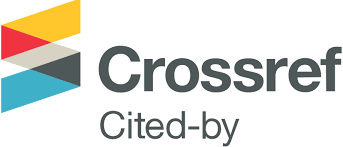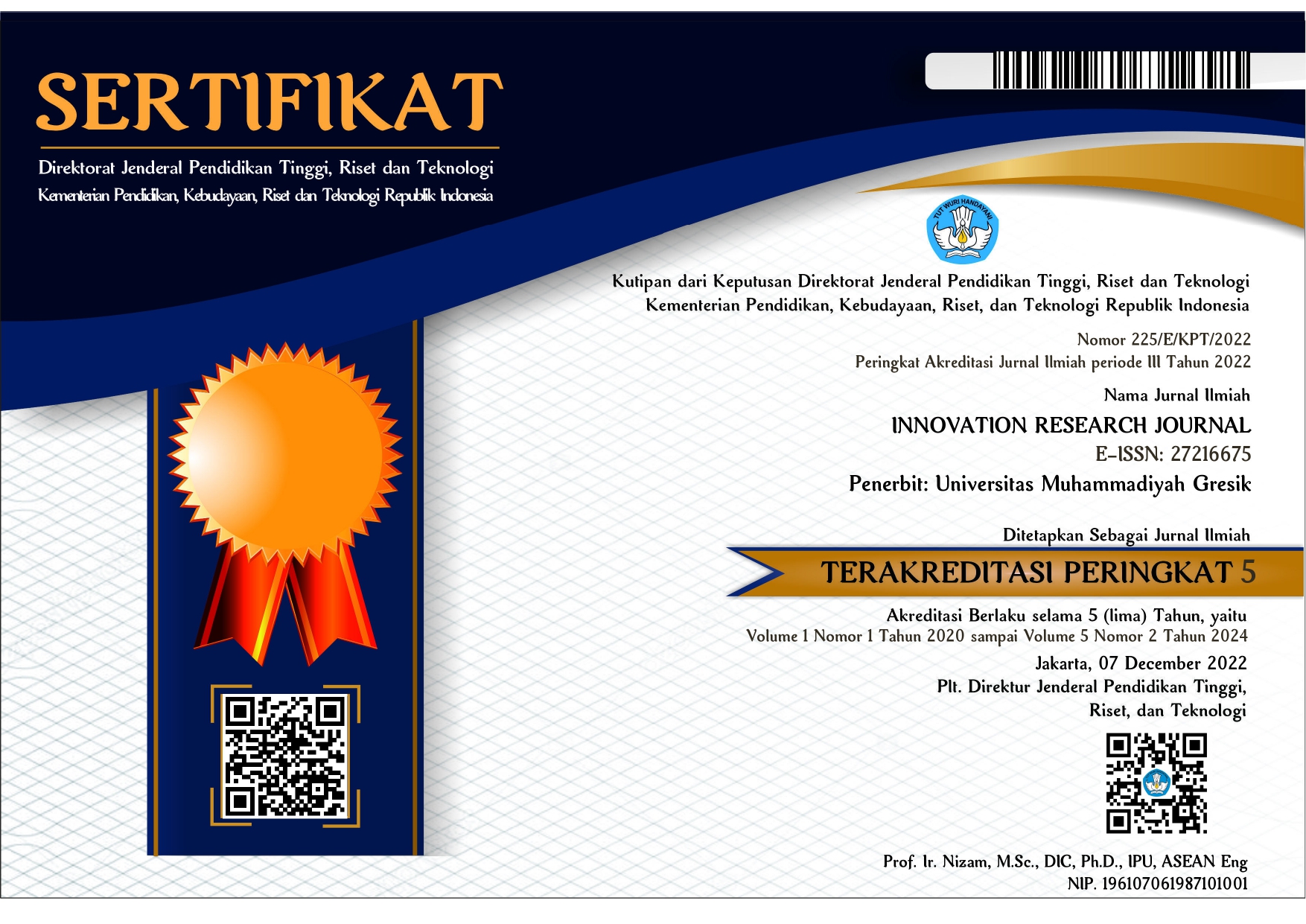The Mediating Factor of Work Discipline: Emotional Intelligence and Employee Performance
DOI:
https://doi.org/10.30587/innovation.v6i2.10144Keywords:
emotional intelligence, spiritual intelligence, performance, work disciplineAbstract
This study aims to analyse the influence of emotional intelligence and spiritual intelligence on employee performance with work discipline as an intervening variable at the Sekretariat Daerah Kabupaten Gresik. This study was conducted using a quantitative descriptive approach. The population used in this study was 129 employees. The data in this study were obtained using a questionnaire collection technique. Data analysis was carried out using statistical methods with structural equation modelling (SEM) and partial least squares (PLS) modelling. The results of the study showed that emotional intelligence did not have a significant effect on performance but had an effect on work discipline and performance with work discipline as an intervening variable. Spiritual intelligence had a significant effect on performance, work discipline, and employee performance, with discipline as an intervening variable. And work discipline has an effect on employee performance. The suggestion given by the author is that the Sekretariat Daerah Kabupaten Gresik can improve emotional intelligence through training, strengthening spiritual intelligence in HR development programs, and continuous evaluation and monitoring.
References
A.A Anwar Prabu Mangkunegara. (2000). Corporate Human Resources Management. Bandung: Refika Aditama.
Adnan, Rajak, Nurlaila, & Chintia Mumulati. (2019). The Influence of Emotional Intelligence, Compensation, and Work Discipline on Employee Performance at the Regional Development Planning Agency of North Maluku Province. Journal of Synergy Management (JMS), Vol. 6, no. 2
Goleman, D., (2005). Emotional Intelligence. Jakarta: PT Gramedia Pustaka.
Koopmans, L. et al., (2014). Improving the Individual Work Performance Questionnaire using Rasch Analysis. Journal of Applied Measurement, 15(2), pp. 160-175.
Salovey, Peter and John D. Mayer. (1990). "Emotional Intelligence". Journal of the University of New Hampshire. Baywood Publishing Co., Inc.
Sari, L. A., Onsardi, & Ekowati, S. (2020). The Influence of Emotional Intelligence and Personality on Employee Performance at Pt. Bni Syariah Bengkulu. Journal of Human Capital Management and Business (Jmmib), 1(1), 79–88
Sudarwati. (2019). The Influence of Emotional Intelligence, Competence and Motivation on the Performance of Wonogiri Regency SETDA Employees. Journal/ Edunomika, 03(02), 310–317.
Zohar and Ian Marshall, Danah. 2007. SQ: Utilizing Spiritual Intelligence in Integralistic and Holistic Thinking to Make Meaning of Life. Bandung: Mizan
Sugiyono (2011). Metode penelitian kuantitatif kualitatif dan R&D. Alfabeta
Sugiyono. (2014). “Metode Penelitian Kuantitatif Kualitatif dan R&D.” Bandung: Alfabeta
Sutrisno, Edi. 2009. Manajemen Sumber Daya Manusia Edisi pertama. Jakarta: Kencana Prenada Media Group
Downloads
Published
Versions
- 2025-07-08 (4)
- 2025-07-08 (3)
- 2025-07-08 (2)
- 2025-07-01 (1)









